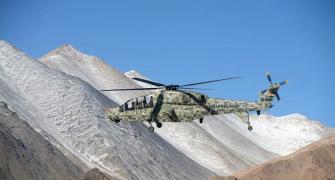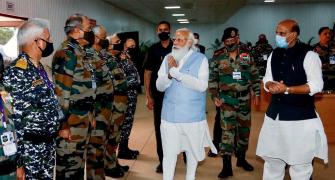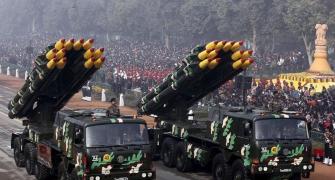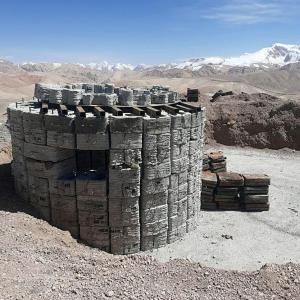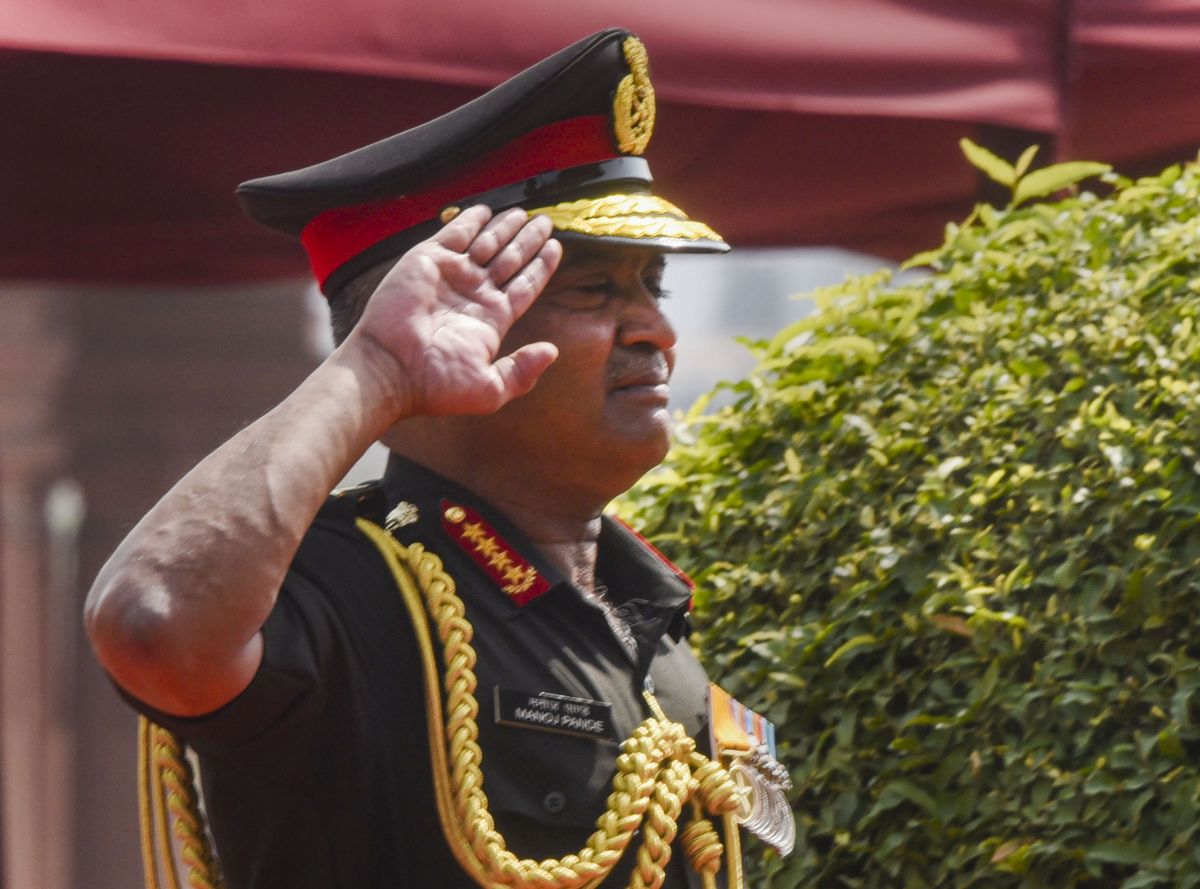In line with its vision to be a "technologically superior force" to fight future wars with indigenous solutions, 49 schemes worth Rs 7,600 crore have been contracted by the Army under the fourth round of emergency procurement, catering to capabilities ranging from drones to individual protective equipment, sources said.

Sources in the military establishment also said the present global scenario "necessitates a flexible and adaptive approach" to tackle defence and national security challenges.
Sixty-eight schemes worth Rs 6,600 crore were signed in the first three tranches of emergency procurements.
"As part of the fourth tranche, 49 schemes worth Rs 7,600 crore have been contracted catering for capabilities ranging from mobility solutions to communication systems, energy solutions, individual protective equipment, armament and simulators, drones and counter-drones," a source in the defence establishment said.
The army is observing 2023 as the 'Year of Transformation', and is working on several projects to reshape and remodel the functional processes to bring in a "quantum jump in its capabilities".
It is spearheading the realisation of the vision of Atmanirbharta with the intent of boosting manufacturing in India and creating a vibrant defence ecosystem, the sources said.
Besides the 49 schemes being contracted under the fourth round of EP, "34 schemes worth approximately Rs 7,000 crore are under final stages of procurement," they said.
Niche technologies like logistic and nano drones, counter-drones, loiter munitions, unarmed aerial vehicle or UAV-launched precision-guided missiles, and automatic spectrum monitoring systems, are being procured, they added.
Sharing the details about the individual protective equipment, a source said, once developed, this will be worn by a soldier in an integrated manner with a bullet-proof jacket, and it will have sensors through which a soldier, in cases of an emergency like an avalanche, can be tracked even if he lies beneath layers of snow.
Besides, six big-ticket Make I projects (government-funded scheme), including light tanks, tactical communication systems, army future ready combat vehicles and terminal end secrecy devices among others are "under progress at various stages," the sources said.
The light tank is a "game changer" as far as hilly or mountainous areas are concerned. A one-of-a-kind solution for "our emerging challenges", it will have unique characteristics of being lightweight, and able to engage targets at long range in high-altitude areas, they said.
The FRCV with the capability to act as a "multiple weapon platforms along with the infusion of niche technology" will cater to the future capability requirements and enhance the overall operational effectiveness index of the army for "emerging threats in varied terrain", sources familiar with the matter said.
They said, the plan is to procure it in multiple phases and highlighted that the FRCV will seek to provide "next-generation operational capabilities and automation".
Sharing the details on Make II projects -- fully funded by industry which aims to harness the technology threshold of domestic industry and assist in import substitution -- the sources said, a total of 45 projects worth Rs 30,000 crore have been initiated in a short period of time with the first contract signed for Maneuverable Expendable Aerial Target (MEAT) in January 2022.
The second contract for Upgraded Assault Track Way was signed in February 2023. These include 19 cases, initiated based on suo motu proposals, they said.
Besides, another innovative solution under this is a "portable helipad". It can be transported easily to difficult and rugged terrain in high-altitude areas "extending the reach of third dimension application, especially in Eastern Ladakh, Central Sector and the Northern Areas", the sources said.
In September 2022, the army said in consonance with its commitment to “fight future wars with indigenous solutions”, it had invited the domestic defence industry to offer critical defence equipment for emergency procurement.
In a series of tweets, it also then shared links for getting details on Requests for Proposals.
Sources said the army, in line with the larger vision of 'Atmanirbharta', has chosen multi-pronged approach to achieve modernisation with indigenisation through various modes, such as 'Make' projects, iDEX (Innovation for Defence Excellence), Army Technology Board, Technology Development Fund, and outreach programme like setting up of 'Army Cells' at leading technology institutions to promote research and development aligned with the army's requirements.
The army is committed to supporting indigenisation, and such initiatives will positively encourage the defence ecosystem in the country. The industry has shown "remarkable resolve in these trying times to deliver the goods and surpass expectations," they said.
The number of products, and technologies inducted or being pursued through multiple approaches are indicators of the collaborative efforts between the user and the developers, "transforming Indian Army to a technologically superior force to fight the future wars with indigenous equipment," the sources said.
"We have taken giant strides towards modernisation and technology infusion. Of the five iDEX projects contracted in the recent past, four projects worth approximately Rs 70 crore have been by the army, and out of the three Make II projects contracted, two worth nearly Rs 180 crore have been contracted by the Army," another source in the defence establishment said.
For achieving "self-sufficiency through indigenisation", a proactive outreach and collaborative campaign is being driven by the Army Design Bureau (ADB) by connecting the capabilities of the defence industries with the user requirements, the source added.
Besides, in design and development cases, preliminary services qualitative requirements are formulated with due consideration to the indigenous industry's capability.
Post development of a prototype, "the PSQRs are converted to SQRs drawing a balance between what the industry has been able to achieve and our operational requirements", they said.

